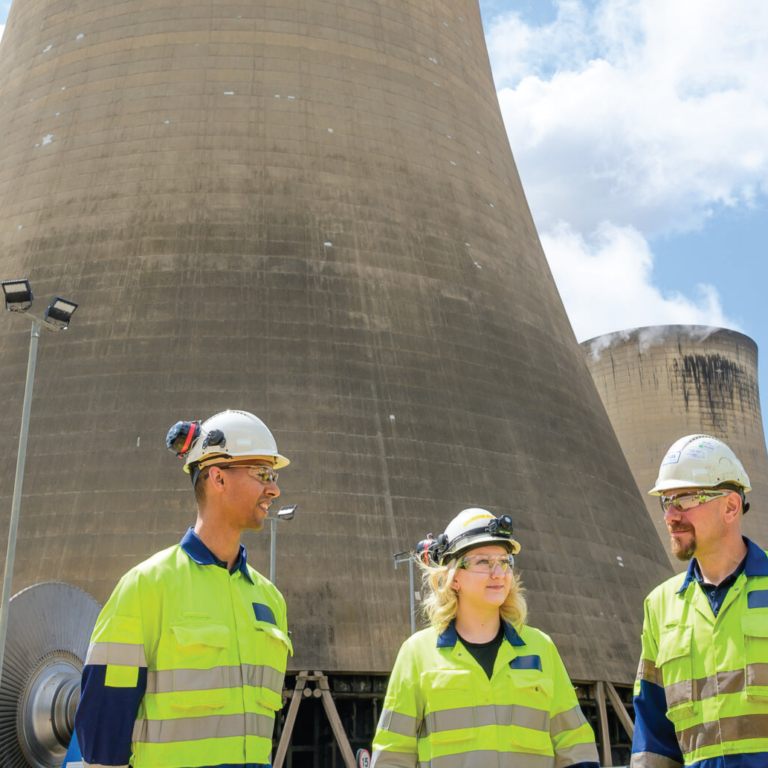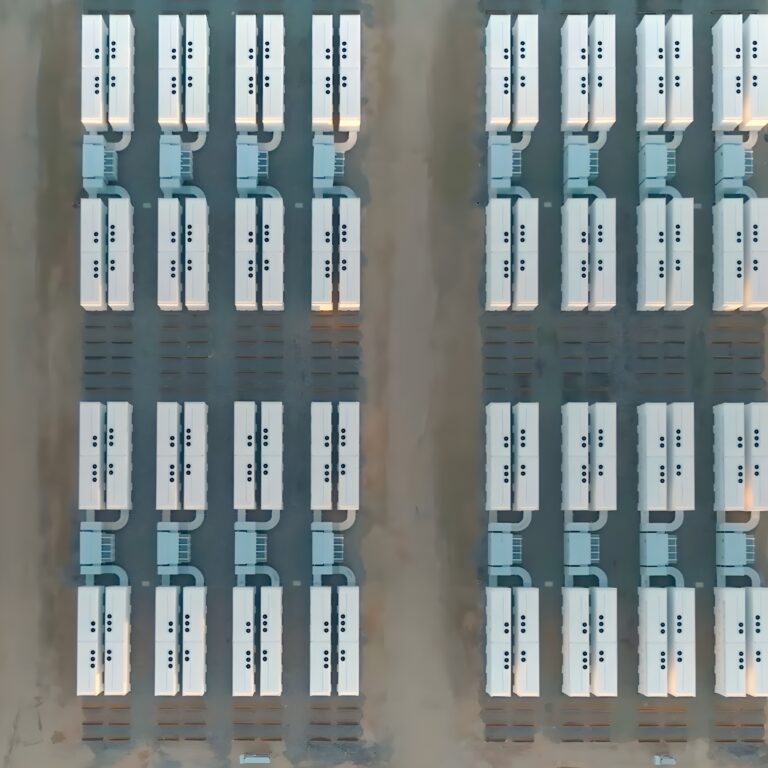- Low-carbon sources of energy – such as nuclear, hydro, biomass, wind and solar – now contribute twice as much electricity than they did in 2010 (20%)
- Carbon emissions from electricity consumption are at a record low – down a third over a 12-month period and 56% over four years
- Britain now has 26GW of wind and solar installed – a six-fold increase over the last six years, while biomass has increased from nothing to 2GW of generating capacity
- Carbon Price Floor plays a big role in reducing coal’s contribution which was just 3% of the UK’s electricity last quarter – down from 38% during the same period in 2012
Last quarter, for the first time ever, more than half (50.2%) of Britain’s electricity was produced from low-carbon energy sources, according to a new quarterly research report released today, authored by researchers from Imperial College London in collaboration with Drax.
Between July and September 2016, the contribution of nuclear, biomass, hydro, wind, solar and low-carbon electricity imports from France peaked at 50.2%, up from just 20% in 2010 – demonstrating the scale and impact of Britain’s renewable energy revolution over the last six years, and the unprecedented changes taking place in the UK energy sector.
Launched today, the Drax Electric Insights Report is designed to shed light on the dramatic impact of these changes, which include the Government’s commitment to shift away from coal by 2025, obligations to decarbonise, policy levers including the Carbon Price Floor, commitments to new nuclear, and prices reaching new highs and new lows.
Using consolidated data produced by National Grid and Elexon, who run the electricity network and balancing market respectively, it will focus, quarter by quarter, on data charting supply and demand, prices, emissions, the performance of the various generation technologies and the networks that connect them – providing new empirical evidence to contribute to the UK energy debate.
According to this quarter’s report, nuclear energy provided the largest share of low-carbon energy over the last three months, generating over a quarter of the UK’s electricity (26%), followed by on-shore and off-shore wind (10%), solar (5%), biomass (4%), low-carbon energy imports from France (4%) and hydro (1%).The data also revealed that Britain now has 26GW of solar and wind installed, a six-fold increase since 2010, while biomass has increased from nothing to 2GW of power generation over the same period.
Crucially, the findings also reveal the sharp decline in coal which has been largely due to the increases to the Carbon Price Floor which took effect last year. Just 3% of Britain’s electricity last quarter was generated from this fossil fuel – down from over a third (38%) during the same period in 2012 – placing it below wind, solar and biomass in the UK energy generation league tables for the very first time. In fact, for almost six full days last quarter, the UK was completely coal free – the first instance Britain burnt no coal to produce its electricity since 1881.
As the report points out, a quarter of Britain’s coal stations have shut down over the last 12-months. In the last quarter alone, coal utilisation fell to its lowest ever levels – with plants producing just 7% of their maximum capacity – less than half the productivity of Britain’s solar panels over the quarter.
According to the research, this move away from dispatchable fossil fuels, like coal, towards weather dependent renewable, while slashing emissions, is also forcing the UK power system into new challenging territories. Last quarter, at its minimum only 4.7 GW of electricity was generated from flexible dispatchable power plants, meaning they had less “breathing space” for times of low demand and high renewables output. In contrast, prior to 2013, this minimum level had never previously fallen beneath 10GW.
The report also found that volatile power prices are likely to be the new normal in the UK, with last quarter witnessing the highest energy prices for several years and an all-time low. Zero or negative power prices – when high inflexible power generation meets low demand – occurred 45 times over the last quarter, twice as many as during the whole of 2015 combined. At the same time, this quarter also saw the highest peak energy price for three years, on Thursday 15th September, when prices reached £802/MWh.
Drax Power CEO, Andy Koss, said:
“This report shows Britain’s energy system is changing dramatically and we are seeing real benefits. Cleaner energy has reached a record high, and carbon emissions from electricity hit a record low. We can also see the crucial role that policy levers like the Carbon Price Floor play.
“But there is more to do to make Britain truly low carbon. Additional reliable, affordable, clean energy is needed on the system, along with a focus of getting the balance right. More intermittent renewables like wind and solar are crucial but they will require more flexible back up, like biomass, to provide homes and business with electricity on demand.”
Dr Iain Staffell, of Imperial’s Centre for Environmental Policy, said:
“You cannot manage what you cannot measure. Although there is a huge amount of data available on our electricity system, before now there was no way to put it all together to see the big picture of what is happening, and more importantly why.
“My work with Drax provided an opportunity to apply my research to cut through the noise and understand Britain’s electricity is changing for the better. We are so used to bad-news stories about the environment, so it is good to see that for once concrete progress is being made.”
The first edition of the report also found that:
- Carbon emissions from electricity consumption are at a record low – down a third over a 12-month period and 56% over four years – thanks to the rise of clean energy and the switch from coal to gas
- Three quarters (76%) of the UK’s electricity consumption emissions are now produced from burning gas, with 14% from produced burning coal – a role reversal from 2012, when coal accounted for 76% and gas 22% of these emissions respectively.
- The last 12 months saw 3.2 GW of new wind and solar farms come online – while a quarter of the country’s coal capacity came off grid
Electric Insights will be published once a quarter, and is supported by an interactive website – www.ElectricInsights.co.uk – which provides live data from 2009 until the present. The data sources and methodology used in Electric Insights are listed in full on the website.
Commissioned by Drax Group, owner and operator of one of the UK’s largest power stations and Europe’s biggest biomass-fuelled power plant, the report will be delivered independently by a team of academics from Imperial College London, facilitated by the College’s consultancy company – Imperial Consultants.
The full report can be read here.
ENDS
Contact
Jenny Davies
Drax
07912 271 236
[email protected]
Paul Hodgson
Drax
01757 612 026
[email protected]
Lynda Stamford
Imperial Consultants
020 7594 2069
[email protected]
Notes to Editors
- Electric Insights Quarterly was commissioned by Drax and is delivered independently by a team of academics from Imperial College London, facilitated by the College’s consultancy company – Imperial Consultants. The report analyses raw data that are made publicly available by National Grid and Elexon, who run the electricity and balancing market respectively. Released four times a year, it will focus on supply and demand, prices, emissions, the performance of the various generation technologies and the network that connects them.
- Along with Dr Iain Staffell, the team from Imperial included Professors Richard Green and Tim Green, experts in energy economics and electrical engineering, and Dr Rob Gross who contributed expertise in energy policy. The work to date has revealed scope for further research in this area, to inform both government and organisations within the energy industry.
- The quarterly reports are backed by an interactive website electricinsights.co.uk which provides live data from 2009 until the present. It was designed by The Economist Group’s independent data design agency, Signal | Noise.
About Drax
Drax Group plc is an innovative energy company that owns and operates the UK’s largest power station in Selby, North Yorkshire, typically providing some 8% of the UK’s electricity. A vital strategic asset, the Group has transformed itself into a predominantly biomass-fuelled electricity generator through its use of innovative technology and sustainably sourced wood pellets. The largest decarbonisation project in Europe is underway to provide the UK with cost effective, low carbon, and reliable renewable power.
The Group employs around 1,400 people and also includes:
Drax Biomass, based in the US and manufacturers compressed wood pellets produced from sustainably managed working forests.
Haven Power, the Group’s retail arm, providing business electricity contracts that are simple, flexible and designed to customers specific requirements.
Billington Bioenergy, is one of the leading distributors of wood pellets for sustainable heating in the UK.
For more information visit www.drax.com
About Imperial Consultants
- Imperial Consultants provide access to over 4,000 research-active expert academics and Imperial College London’s state of the art facilities to deliver innovative solutions to meet the business needs of industry, government and the third sector.
- Founded in 1990, Imperial Consultants is the wholly owned consultancy company of Imperial College London. It was set up to help deliver the Colleges vision “A world where the direct application of Imperial’s expertise to solve major challenges for the benefit of society and industry is the global standard.”
- One of the largest university owned consultancy companies in the UK, Imperial Consultants deliver around 600 projects for 500 clients each year. Clients range from SMEs to global corporations and include AstraZeneca, BAE Systems, BP, Caterpillar, DEFRA, EDF Energy, International AIDS Vaccine Initiative and Unilever.
- In the last 5 years, 40% of our projects have been delivered outside the UK, in over 70 countries.
- For more information visit imperial-consultants.co.uk










